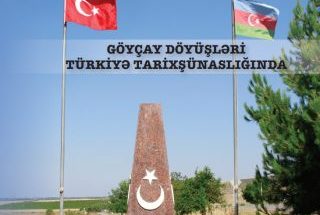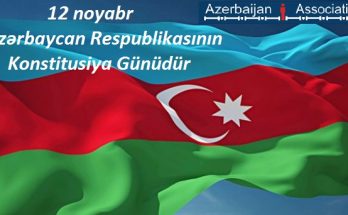 The Chisinau meeting of the Azerbaijani and Armenian presidents held on Oct.9 and prospects of settlement of the Nagorno-Karabakh conflict were discussed at the Azerbaijani Media Center. The Azerbaijani politicians attended the discussions held by representative of the International Alert Avaz Hasanov.
The Chisinau meeting of the Azerbaijani and Armenian presidents held on Oct.9 and prospects of settlement of the Nagorno-Karabakh conflict were discussed at the Azerbaijani Media Center. The Azerbaijani politicians attended the discussions held by representative of the International Alert Avaz Hasanov.
“Unfortunately, the Chisinau meeting did not bring concrete results. No document was signed,” politician Rasim Musabeyov said.
Azerbaijani and Armenian Presidents, Ilham Aliyev and Serzh Sargsyan met to discuss the Nagorno-Karabakh conflict in Chisinau on Oct. 8. The leaders’ meeting was held within participation in the summit of the CIS countries’ heads.
The conflict between the two South Caucasus countries began in 1988 when Armenia made territorial claims against Azerbaijan. Armenian armed forces have occupied 20 percent of Azerbaijan since 1992, including the Nagorno-Karabakh region and 7 surrounding districts. Azerbaijan and Armenia signed a ceasefire agreement in 1994. The co-chairs of the OSCE Minsk Group – Russia, France, and the U.S. – are currently holding the peace negotiations.
Musabeyov said that an agreement on basic principles and both foreign ministers’ statement on preparation of the framework agreement is the best possible result of the Chisinau meeting. “Unfortunately, it did not happen,” Musabeyov said.
Sargsyan had to act cautiously in the negotiation process on the Nagorno-Karabakh due to signing of the protocols with Turkey to restore the diplomatic relations, the politicians said. Musabeyov said that the reason includes need for concessions towards both Turkey and the Nagorno-Karabakh, Musabeyov said.
Earlier Turkish Prime Minister, Recep Tayyip Erdogan told Trend News in an exclusive interview that Turkey and Armenia will sign a deal to establish diplomatic ties on Oct. 10.
On Aug. 31, Turkey and Armenia in the talks mediated by Switzerland reached an agreement to launch “internal political consultations” to sign the Protocol on Establishment of Diplomatic Relations and Protocol on Development of Bilateral Relations.
There are no diplomatic relations between Turkey and Armenia and the borders have been closed since 1993.
“It is rather difficult to retain status quo,” Musabeyov added.
The Prague process, based on the Madrid principles, is nearing its completion. But the result is still unknown, Musabayev said.
Musabayev welcomes the rapprochement between Turkey and Armenia, believing that it will favorably influence the settlement of the Nagorno-Karabakh conflict.
“Turkey meets the Armenians’ issues, but calls the U.S. for certain concessions on the Nagorno-Karabakh”, – he said.
Director of the Peace and Conflict Resolution Center, Elkhan Mehdiyev, is less optimistic.
“If the Turkish-Armenian rapprochement promotes solving the Nagorno-Karabakh conflict, in reality, existence of the nominal Nagorno-Karabakh state within Azerbaijan will be the actual settlement,” Mehdiyev added.
Chairman of the Association for the Protection of Women’s Rights after D.Aliyeva, Novella Jafarova also supports Turkey’s policy towards Armenia.
However, the main condition to solve the conflict is to refuse from deployment of the Russian peacekeepers in Azerbaijani released regions to avoid repetition of South Ossetia’s scenario.
Trend News



